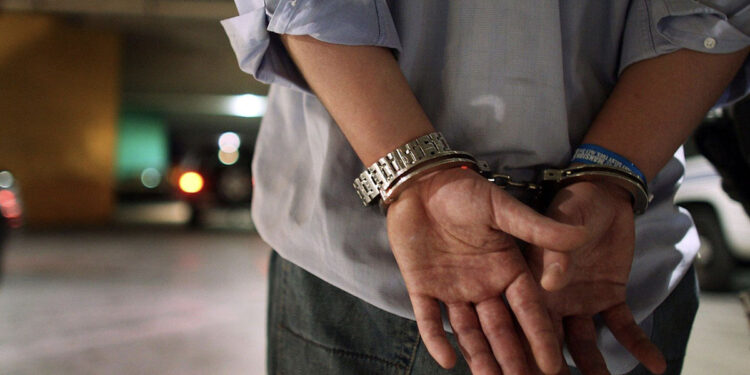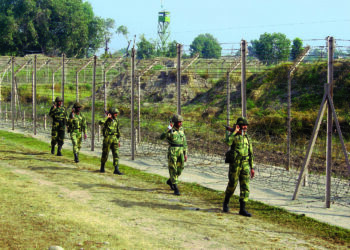The Criminal Procedure (Identification) Bill 2022 after being passed in Parliament, awaits consent from the President of India. It replaces the Identification of Prisoners Act, of 1920, which empowered the investigating officer the collection of certain identifiable information about convicts and other persons for investigation of crime. The 37th Law Commission (1980) recommended amending this law keeping in view the scientific advances.
Understandably, the investigation of crimes and fixing the identity of the perpetrators are building blocks of the justice delivery system. Justice demands that no innocent person should be prosecuted, at the same time, it is also the responsibility of the state to ensure that no offender should escape punishment as per the law. Hence, it is of utmost importance that the identity of the offender is determined accurately.
The Union Home Minister has pointed out that this law will modernize identification processes and increase the conviction rate. Countries, like the UK, and USA have successfully implemented similar laws and collect biometric identifiers – facial features, fingerprints, or retina scans of people who are arrested or convicted. The bill has been opposed in Parliament and various concerns about human rights and privacy are being raised. While the change in law was long due, it is being argued that the Bill may lead to a violation of Articles 14 (equality before law), 20 (3) (right against self-incrimination), and 21 (protection of life and personal liberty).
Reconciling two principles-the interest of citizens to be protected from invasion of physical privacy and secondly the interest of the state to secure evidence bearing on the commission of a crime is indeed a difficult balancing act.
The bill widens the ambit of persons and the details that can be taken. This Bill seeks to authorize police or prison officers to take ‘measurements’ of those who have been arrested, detained, convicted, or any person directed by a judicial or executive magistrate. The proviso to section 3 of the bill makes it clear that not all suspected offenders can be forced to give their measurements. Only offenders who are accused of crimes against women and children and those involved in heinous crimes entailing punishment of more than seven years imprisonment can be forced to give their measurement. Any refusal to furnish samples in these cases will attract a three-month prison term and a fine of Rs. 500 or both under Indian Penal Code Section 186.
Article 20(3) of the Constitution of India provides that no person shall be compelled to be a witness against himself. The Apex Court held that it prohibits only taking oral or written statements of the accused person and guarantees his right to silence. It is to be understood that “Being a witness against himself” and “taking the measurement for the purpose of fixing identity” are two different concepts. The former is a rule of evidence, the latter is a step in the investigation. The former is self-incriminatory, and the latter is a process to filter innocents from the offenders. Both concepts vary in their nature, scope, and consequences. However, concerns that police can be incentivized to overstate underlying crimes in order to collect mandatory biometrics remain.
As regards, the details about convicts, the expanded list of details includes palm prints, iris, and retina scans, behavioral attributes like signatures and handwriting, and other physical and biological samples. The bill does not specify what these “biological samples” are. Under the existing laws and procedures, an accused person can be compelled to give his handwriting samples under Section 311A of the Criminal Procedure Code 1973 and undergo a medical examination, including giving samples of body fluids, etc., under Sections 53 and 53A of the CrPC. The Supreme Court in the landmark case of Selvi and others (2010), declared the use of the psychological tools of investigation, without the informed consent of the person concerned, as violative of Article 20(3). The importance of these tools as an aid to investigation after the individual’s informed consent is obtained before a Magistrate was duly recognized. Privacy was declared “the constitutional core of human dignity”, further any kind of state surveillance must be proportionate and justifiable.
The previous Act only authorizes police officers ranked sub-inspectors and above to take the prescribed ‘measurements’. The Bill authorizes a police officer, not below the rank of a head constable, and a prison officer(not belowHead Warder). A robust system to investigate alleged police misconduct is essential. The past decade has also seen an expansion of biometrics in society, from personal devices like smartphones to attendance records, and passport and visa applications. In fact, technology has facilitated the interlinking of the various wings of the Criminal Justice system. CCTNS (Crime and Criminal Tracking Network System) connects all police stations, and e-prisons, e-prosecution, and e-courts are merged into the Inter Operable Criminal Justice System(ICJS). The practices of recording photographs and fingerprints, even retina scans already exist in prisons and biometric information has helped to streamline the process of entry and release from prison. Aadhar details of all prisoners and even the prison visitors are kept and have helped in tracking offenders. The national database of sexual offenders has over 1 million names, fingerprints, DNA samples, aadhaar card numbers, and voter IDs and is accessible only to law enforcement agencies.
Apprehensions remain that by providing Retina scans, biological samples, and even “behavioral attributes” such as handwriting, we are signing off on much greater powers of the state so there is a need to put in place strong safeguards. It would be a real challenge to keep such data and samples safe for a long period, in order to prevent their illegal dissemination and misuse. Identity-related data would only be stored with the National Crime Record Bureau(NCRB). In cases that ended up in acquittal or discharge and non-prosecution of the accused persons the data shall be deleted from time to time as per the procedure prescribed in the law. Detailed protocols will be needed.
This Bill permits the retention of the records for 75 years. It allows the NCRB to share and disseminate personal data with “any law enforcement agency.” This does violate the best practices of data protection, including the principle of “purpose limitation”.
Concerns are also being expressed by digital rights researchers that there could be the creation of several thousand criminal profiles, based on biometric data. The pace of technological developments and how personal data are being processed affects all of us in all sorts of ways. The new Bill is being brought in without any overreaching data protection law being in place in the country, unlike the European Union’s General Data Privacy Regulation (GDPR). A framework for data protection is urgently needed.
Good practices must go hand in hand with an expanded biometrics collection rather than following as an afterthought. Dr KP SINGH AND DR UPNEET LALLI .
- Published in Tribune —‘Law to Identify Criminals Needs safeguards’ on 19 April 2022 in The Tribune. https://www.tribuneindia.com/news/comment/law-to-identify-criminals-needs-safeguards-387499












